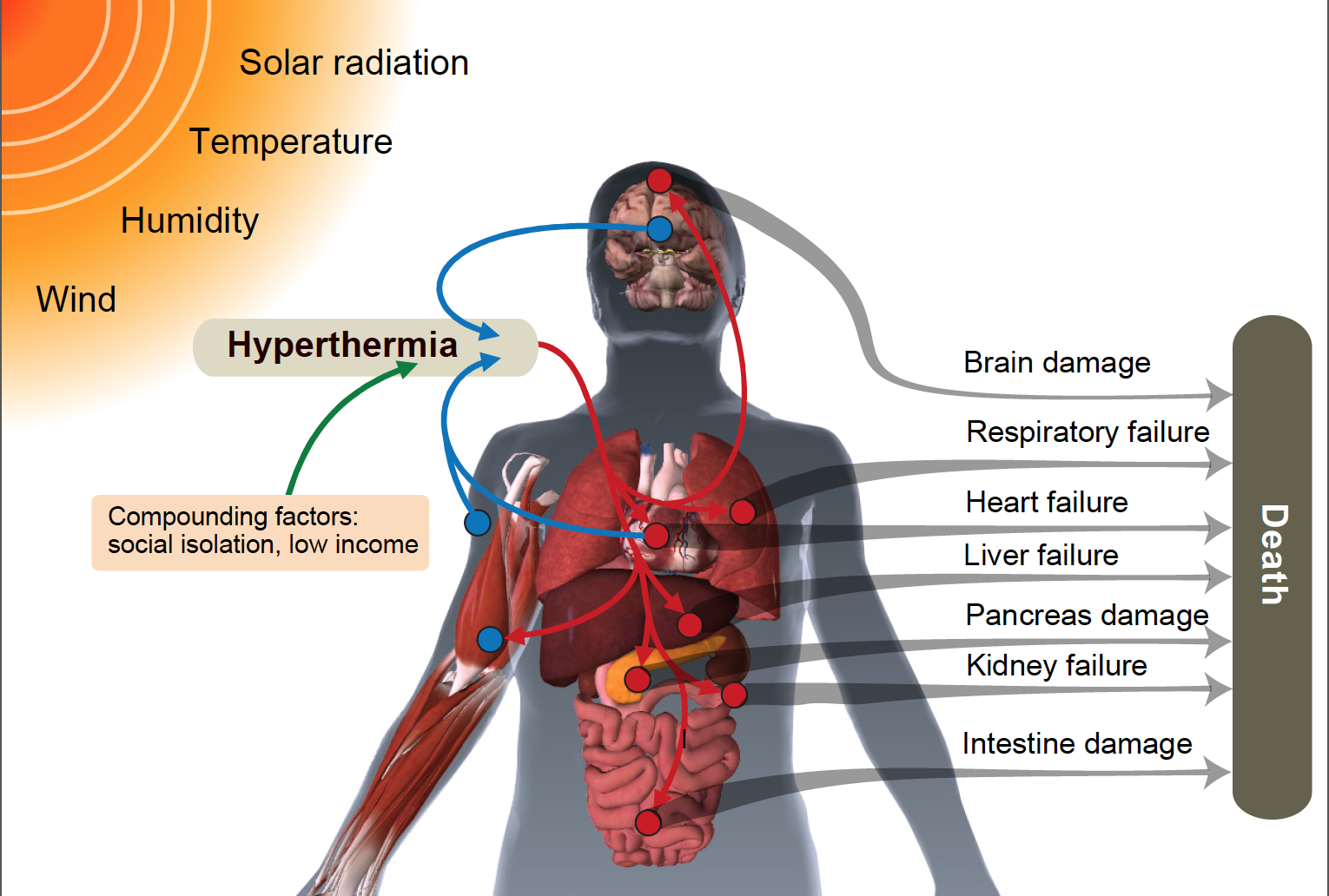Here Are 27 Ways Heat Waves Can Kill You
Credit to Author: Stephen Leahy| Date: Thu, 09 Nov 2017 10:00:00 +0000
The loss of human life in heat waves has jumped more than 2300 percent in the last ten years—over 10,000 people died in the 2010 Russian heat wave, and at least 2,000 in the 2015 India heat wave. More heat waves are inevitable as the climate continues to warm. This week, the World Meteorological Organization announced that 2017 is very likely to join 2016 and 2015 to be the three warmest years on record. However, there isn’t a comprehensive understanding on how heat kills.
But according to a new study, which pulls together a wide range of medical research, there are at least 27 ways you can die from heat. It’s not just the old and young who are affected, the study found. Everyone is vulnerable.
“It turns out anyone can die of heat stress. There are a lot of things that can go wrong when the human body is exposed to high heat,” said Camilo Mora at the University of Hawaii Manoa. Mora is the lead author of “Twenty-Seven Ways a Heat Wave Can Kill You: Deadly Heat in the Era of Climate Change,” published Thursday in the American Heart Association journal Circulation: Cardiovascular Quality and Outcomes.

When it’s hot, the body re-directs blood to skin in an effort to cool off. But this can starve some organs of blood flow when our internal temperature gets close to 40℃ instead of the normal 37 to 38℃. The gut can leak toxins into the body, cells begin to die spilling their contents into the blood stream, and a devastating inflammatory response can occur, triggering blood clots (among other things), researchers found.
“The medical science in the paper is pretty accurate,” said Neha Raukar, associate professor of emergency medicine at Brown University, who was not involved in the study. “We do underestimate the risk of prolonged exposure to heat,” Raukar told Motherboard over the phone.
It isn’t always just the heat that kills people in heat waves, she points out. Smoke from forest fires causes breathing problems and heart attacks, or people drown trying to cool off in lakes and rivers.
Hot weather’s most deadly effects result from a combination of high temperature and high humidity. For example, if the temperature is 35℃ with 85 percent humidity, the human body cannot cool itself enough on its own to survive more than a few hours.
Read More: Every Other Summer Will Shatter Heat Records Within a Decade
Even if the heat doesn’t kill you, it can result in permanent damage to the brain, central nervous system, and internal organs, requiring extensive medical treatment, Mora said in an interview.
Cognitive impairment can be the result even with mild, short-lived bouts of hyperthermia, including heat strokes, a 2016 medical study reported. In a few cases, this may be permanent.
Climate change is implicated in the increase in deadly heat waves. India has experienced a 250 percent increase in the number of heat waves that killed more than 100 people between 1960 and 2009. This is likely the result of climate change, according a 2017 study in Science Advances.
The Mora et al. paper notes that all of this is happening with just 1℃ of global warming. Temperatures will continue to rise in lockstep with increasing emissions of greenhouse gases from burning fossil fuels. In other words, it’s going to get hotter, and soon.
“Only the rapid reduction of greenhouse gases paired with large economic investment in adaptation will help us escape the health risks of heat waves,” the paper concludes.
Raukar agrees that a lot can be done to help people survive heat waves with proper preparation and resources. And of course the starting point is mitigating the problem by reducing the emissions.
“I’d like to think we’d do better than the gloomy forecast in the study.”
Get six of our favorite Motherboard stories every day by signing up for our newsletter.